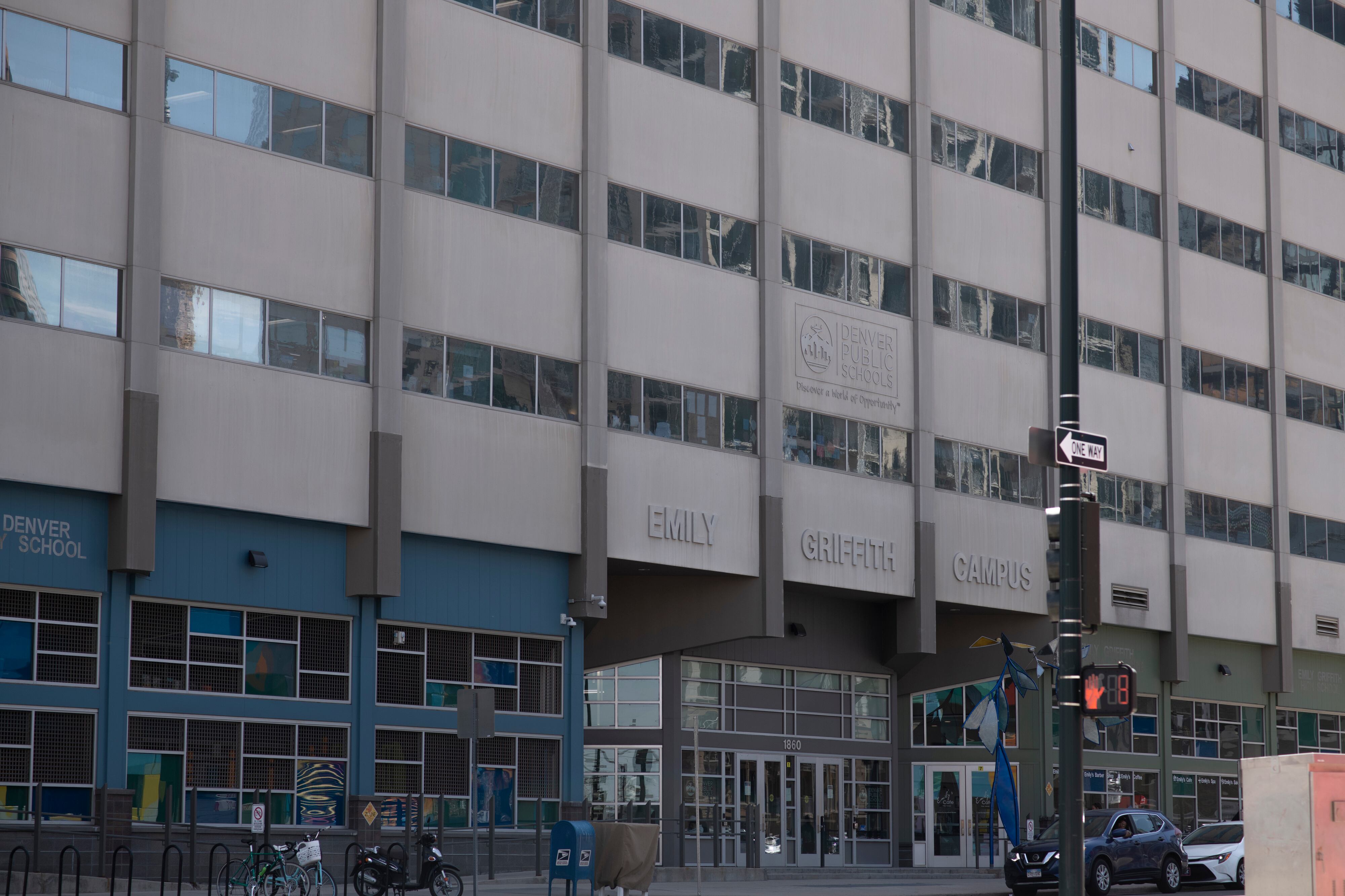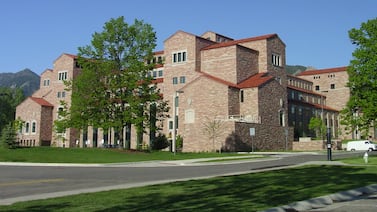Sign up for Chalkbeat Colorado’s free daily newsletter to get the latest reporting from us, plus curated news from other Colorado outlets, delivered to your inbox.
The former executive director of communications for Denver Public Schools accused the district this week of “limiting the flow of information” to school board members, which he said hinders the transparency of an organization that serves 88,000 of the city’s children.
Will Jones, whose position was eliminated from DPS in February, also criticized the district for asking the communications staff to sign confidentiality agreements shortly after his departure.
“I believe that information is a good thing, and more information is even better,” Jones said at a press conference Thursday at which he was the main speaker. Jones said he spoke up because “in my experience, and seeing what was happening with DPS, the board of education wasn’t getting as much information now as they used to.”
But board members, in statements and interviews, refuted many of Jones’ concerns. In a statement Thursday, the board said the change in its communication was intentional.
“The previous iteration of the Board, through policy, agreed to limit its information requests to reduce the administrative burden on District staff and resources,” the board’s statement said. That policy was adopted before six of the seven current board members were elected.
In an interview, board member Scott Esserman said he doesn’t feel uninformed.
“I don’t feel left in the dark. I don’t feel the rest of my board colleagues are being left in the dark,” said Esserman, who emphasized that he was speaking for himself and not the entire board. “By state law, we have access to every document in the district.”
Other board members did not return messages or declined to comment.
Esserman said he’s not concerned about any confidentiality agreements or non-disclosure agreements, known as NDAs. The agreement that the communications staff was asked to sign says they will not disclose confidential information about the operations of the district, personnel and employee discipline matters, and more, according to a copy obtained by Chalkbeat.
In a statement, the district said it “prioritizes the safeguarding of student and employee information.” DPS said it requires numerous employees with access to confidential information to sign NDAs “to remind them of their obligations under privacy laws.”
The NDAs “do not prevent employees from speaking out, as all who sign are still protected under the Federal Whistleblower Protection Program,” the district said.
It’s not clear how long DPS has mandated certain employees sign confidentiality agreements. District spokespeople said that the communications staff was first asked to sign the agreements two months ago, but that other employees may have had NDAs in place prior to that.
It’s also not clear how common such NDAs are. Melissa Gibson, deputy executive director for the Colorado Association of School Executives, which represents school administrators across the state, said the organization hadn’t heard about the use of NDAs by school districts until this week.
A spokesperson for at least one other metro area school district, Cherry Creek, said it doesn’t require its employees to sign confidentiality agreements.
Don Mayer, a professor at the Daniels College of Business at the University of Denver, reviewed a copy of the NDA signed by DPS communications staff. He called it “a little strange.”
“NDAs got started in corporate America, not in public schools,” Mayer said.
Mayer said the agreement does not appear to violate a state law passed last year restricting the use of NDAs for government employees. But he said it’s possible a judge would decide not to enforce it “because they’d see the need for some transparency in the operations of a publicly funded organization.”
At the press conference Thursday and in comments he made as a member of the public at a school board meeting Monday, Jones blamed the school board’s governance model for what he described as a lack of transparency between the district and the board.
Called “policy governance,” the model assigns clear roles: The board makes the high-level policy, while the superintendent runs the day-to-day operations of DPS.
For most of the nine years he worked in communications at DPS, Jones said board members could ask him directly about a specific issue and he’d be able to tell them all the details. But for the past couple years, he said all communication to the board was funneled through Superintendent Alex Marrero, who was hired by the board in June 2021.
“Your employee,” Jones told the board Monday, referring to Marrero, “came to my office one day and told me if board members come to me with questions, not to answer. To politely refer them to him and he would do the responding.”
In a statement, the board said that’s how policy governance is supposed to work.
“The Board interacts directly only with the superintendent, their sole employee, to ensure a streamlined management structure,” the statement says. The purpose, it says, is so DPS employees “receive their directions from one voice, not seven” board members.
The board adopted the policy governance model in April 2021, two months before Marrero was hired. The vote was unanimous, though six of the seven current board members were elected after that vote. Board President Carrie Olson, who was elected in 2019 and re-elected in 2023, is the only member of the board who voted on policy governance.
The board has at times struggled with policy governance and disagreed about how it should be implemented. But no board member has ever called for a vote to get rid of it.
“If the Board ever believes it is not receiving the information it requires, the Board may revisit and change this policy at any time,” the board said in a statement.
Melanie Asmar is the bureau chief for Chalkbeat Colorado. Contact Melanie at masmar@chalkbeat.org.






